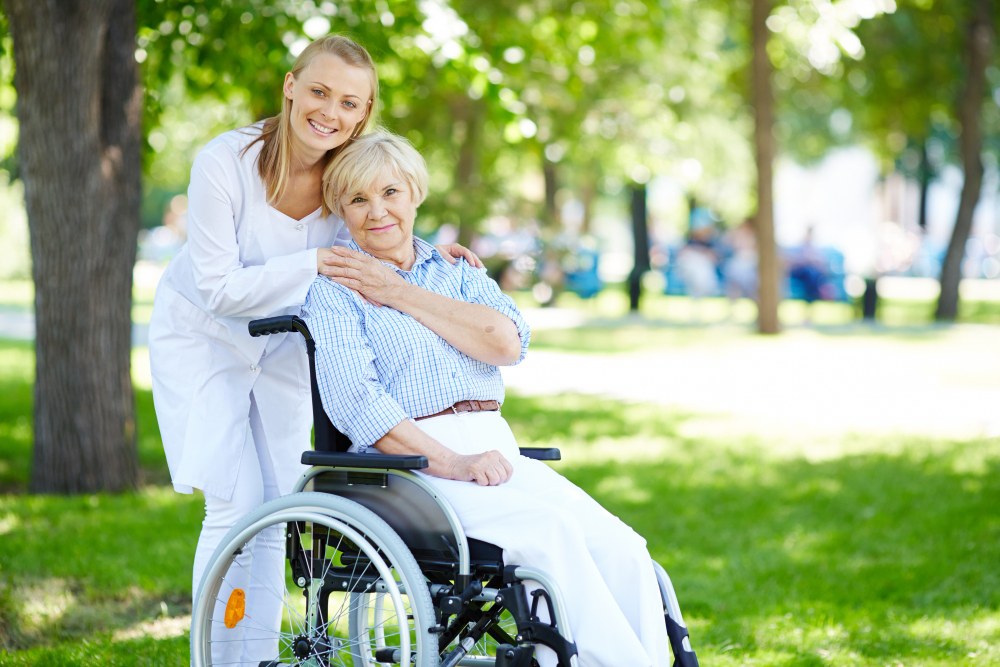For the third blog in our series for Stress Awareness Month, we are focussing on our service users, looking at the stress they suffer from and how to support them.
Everyone experiences stress, from all ages and all health ranges. But, looking out for our more elderly service users is important so that we ensure their mental health is being cared for as well as their physical health.
Stress as you get older
When we experience stress, our brain releases hormones like cortisol and adrenaline to give us the energy and focus we need to get through the situation causing us this stress. However, over time, our brain struggles to produce the right amount of these hormones meaning that we can end up producing too much which makes them harder to shut down.
As we get older, we can find stress to be even more overwhelming and may struggle to handle it as well as we once did. Perhaps it’s due to experiencing the loss of an elderly spouse or friend, or maybe living alone and feeling isolated is becoming too much. It might be daunting losing independence, too, with having carers in your home or going into a care home. Physical health limitations can cause stress too, making even everyday tasks more stressful. Signs that someone is experiencing stress
As a friend, family member or care giver, looking out for the elderly and their mental health is something we can do to make sure they aren’t suffering alone. Some signs they may be feeling particularly stressed are:
- Mood swings: increased irritability, sadness, or depression
- Being forgetful: may be as simple as names or places
- Lacking concentration
- Changed sleeping pattern or insomnia
- Regular tension headaches or heart palpitations
- Changes in eating habits: eating more or less than usual
- Not wanting to socialise or participate in activities they used to enjoy
What to do if you’re feeling stressed
Pinpoint what’s making you feel stressed: It will be a lot easier to work on eliminating your stress if you know what’s causing it.
Exercise: It seems cliché but getting your heart rate up is a known mood-booster. Any form of exercise that can release some serotonin will help, and it doesn’t have to be vigorous or intense – especially if you struggle with physical activity. Here is an example of an exercise class tailored to keeping active in later life, doing gentle chair-based exercise to boost circulation, increase mobility and strengthen muscles. Switch up your routine: Try something new. Maybe starting your day off with something different like a walk or a new breakfast, or trying out a new hobby, can help you mix up your day and put your energy into something new.
Try stress relief techniques: You may have brushed off the idea of trying meditating, deep breathing exercises, or even yoga, but they are all ways to relieve tension and let go of anxiety. It may help to try a meditation podcast to get started, such as The Daily Meditation Podcast, or to follow a YouTube video for yoga so you can try it in the comfort of your own home.
How to support an elderly loved one or service user experiencing stress
Encourage social interaction: They may be reluctant to socialise, but with some encouragement and support you may be able to help them get out of their rut and meet people. You could accompany them to a club or help them sign up to do some volunteering.
Be a listening ear: Perhaps they feel embarrassed or like a burden to ask you to talk, so offering a listening ear and telling them you want to help might make them feel more at ease.
Reassurance: Letting them know they’re not alone and that they’ll be okay may be the reassurance they need. Looking for solutions with them, such as respite care organisations or encouraging them to be positive, may relieve them from feeling powerless.
For further advice on how to support the elderly with stress, follow this link.





